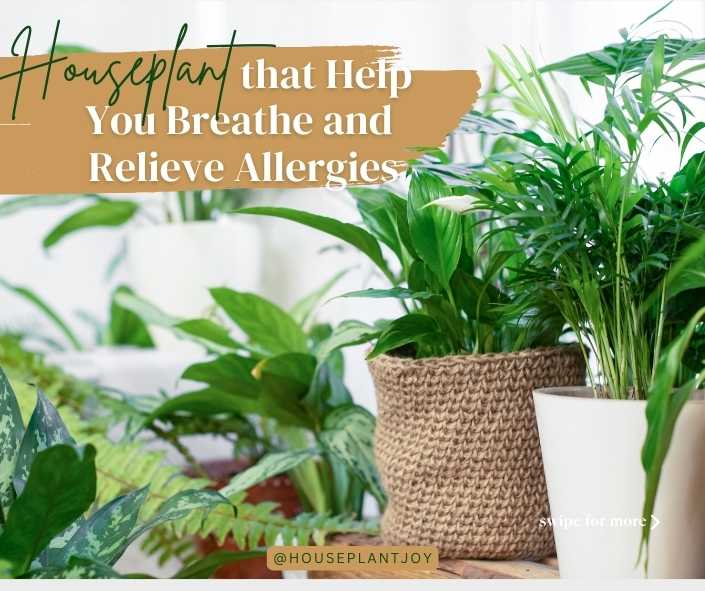HousePlantJoy is supported by our audience. When you purchase through one of our links, we may earn a small affiliate commission. As an Amazon Associate I earn from qualifying purchases. Your cost is not affected.
==================
The benefits of indoor plants can help you in a variety of ways. There are houseplants that help you breathe by purifying air, and there are some that can help you with allergies. Indoor gardening has become a popular and enjoyable hobby.
What is a Houseplant?
The term houseplant does not pertain to a specific species since plants naturally need outdoor elements like rain, fresh air, and sunlight. Instead, houseplant is just a term used to describe plants that can handle indoor settings. Common houseplants usually come from subtropical climates and are accustomed to growing in limited light conditions. These plants are also hard plants that can survive fluctuating temperatures, seasons, and light, as well as frequent drying out.
Photo-sharing apps like Pinterest and Instagram are flooded with greenery-inspired home decor, botanical-themed podcasts, and even online plant subscription services. Whereas social media boost indoor gardening trends and rapidly spread info about houseplants that help with allergies and other health issues.
Here are more medical discoveries about the benefits of indoor plants in our health and well-being.
Houseplants that help you breathe, relieve allergies, reduce stress, and more
Houseplants that help with allergies
Documentations show that rooms with at least one or two houseplants have lesser dust and mold compared to rooms without any foliage. And the more you add, the more effective they will be at lowering allergy triggers. Researchers found that leaves and other plant parts act as natural filters to catch airborne allergens. Houseplants that are found to be effective in relieving allergies include common low-light plants such as:
- Violets
- Chinese evergreens
- Peace lilies
- Mums
- Golden Pothos
- Philodendrons
- Gerbera Daises
Plants with textured leaves are said to be better trappers. Although there are many houseplants that help with allergies, there are also others that can cause an allergic reaction—like those with spores and pollen.
Helps improve mental and emotional health
Plants are not only for brightening the surroundings, but they are also effective in lifting up moods. Having plants in work offices helps employees to feel happy about their jobs, worry less, and have fewer sick leaves.
A study found that working with plants helps with both physiological and psychological stress. They can make people feel more comfortable, soothed, and relaxed, even when handling a tough task or are under mental stress. Flowers like chamomile, rosemary, gerbera, and jasmine are great examples. These ornamentals have natural aesthetic beauty excellent for relieving stress and anxiety.
Boost Focus-attention
Plants can level up your test scores by strengthening your memory and making it easier to concentrate. Trials show that students in classrooms with real, live plants were more attentive and better able to perform well on math, spelling, reading, and science tests than kids in classrooms without any ornamentals. Yes, plants do increase our mental clarity. So, bring in golden pothos, bamboo palms, jade plants, and monstera to empty your to-do list.
Promotes a speedy recovery
Sending flowers in a bouquet or pot to a sick loved one is not just an act of wishing a get well soon. Looking at flowers may speed their recovery from an illness, injury, or surgery quicker. Bright yellow roses, sunflowers, daisies, and pink tulips are traditionally used when sending a getting well soon message.
Research conducted in hospital settings suggests that flowers are great for quicker recovery. Researchers found that people who had plants in their room recuperate from surgery faster. They also tolerated pain better and needed lesser medication than people who don’t have any view of nature during recovery periods. Plants also possibly people whole are recovering from trauma fast, as well as people with dementia or those who live in assisted-living facilities and nursing homes.
Improves Digestion
Herbs with bitter taste are traditionally used in oriental medicine to speed up digestion and promote digestive secretions. Even Europeans mostly drink a bitter herbal beverage before a meal to stimulate digestive secretions and to pass food quicker. Bitter herbs such as mint, peppermint, and spearmint reduce gas, bloating, food allergies, and other digestive problems. Basil leaves, a cooking herb can also help relax your stomach. While gentian root is the common digestive bitter in Western herbalism.
Bitter herbs embody an array of uniquely flavored plants. Other bitter digestants include:
- Barberry root
- Dandelion
- Artichoke
- Horseradish
- Parsley
- Coriander
- Mugwort
- Horehound
- Endive
Houseplants that help you breathe
Phytoremediation refers to plants’ ability to scrub off volatile organic compounds (VOCs are common air contaminants that can cause or worsen asthma) a process discovered by NASA in the late 1980s. The research team discovered that the soil and roots of houseplants reduced airborne volatile organic compounds remarkably, improving the air quality inside spacecraft. Researchers say that a number of plants have the equal efficiency of modern biofilters and other air-purifying technologies. Houseplants that help you breathe clean air include English ivy, asparagus fern, dragon tree, rubber fig, Boston fern, and bamboo palms.
Photosynthesis is also great for providing clean oxygen to breathe. Indoor plants like gerbera daisies keep giving off oxygen that may help with restful sleep. Houseplants even add moisture to the air. Another study found that some types of plants can boost room humidity by 30%. An increase in humidity will help you avoid certain illnesses like colds, flu, and skin allergies. Notable humidifying plants are:
- Areca palm
- Dwarf date
- Parlor palm
- Spider pant
For First Aid
Colorful perennials like yarrows can be used to treat ailments, especially bleeding. It’s a handy plant in cases of cuts or minor bleeding. Simply crush the leaves and apply them gently to the affected area. The gel from the aloe plant is also a popular home remedy for treating sunburns and other minor burns. It can ease psoriasis and other skin irritations. Aloe juice can even help relieve constipation. Tea made from bay leaf, echinacea, and lemongrass, are herbal remedies for ailments like headaches, sinusitis, and colds. Eucalyptus is a houseplant that helps you breathe by relieving sinusitis.
Some health risks to consider
As you have seen, there are houseplants that help you breathe and relieve illnesses, yet there are still some risks involved. Keep these in mind as you decide if you are planning an indoor garden. So, before you bring in a new plant, ensure that it’s safe for kids or pets. Here’s a short list of common plants that can be toxic to children and animals:
- Amaryllis
- aloe vera
- azalea
- chrysanthemums
- cyclamen
- dieffenbachia
- English ivy
- jade
- jonquils
- lilies of many varieties
- mistletoe
- monstera deliciosa
- philodendron
- poinsettias
- pothos
- sago palm
- umbrella plant
Tips for caring for houseplants that help breathe and relieve allergies
- Select plants that can survive subtropical climates.
- Allow plants to gradually adapt to your home’s conditions.
- Avoid planting directly into ceramic and terracotta pots as the plant can get cold in winter.
- For rooms with low lighting, choose shade-tolerant plants. In areas with direct sunlight, go for plants with patterned or colored leaves.
The Bottom-line
Having indoor plants in your home, office, classroom, or hospital room can have many benefits. Houseplants that help you breathe positively influence the air quality in your home. Indoor gardening also relieves stress, boosts productivity, improves focus, and promotes speedy recovery. However, it’s important to determine which plants are toxic, especially if you have children or pets at home.
If you have asthma or allergies, be alert to species that aggravate your symptoms. Fortunately, most houseplants are hypoallergenic. Sharing your space with houseplants can lighten the atmosphere and promote a healthier environment.



